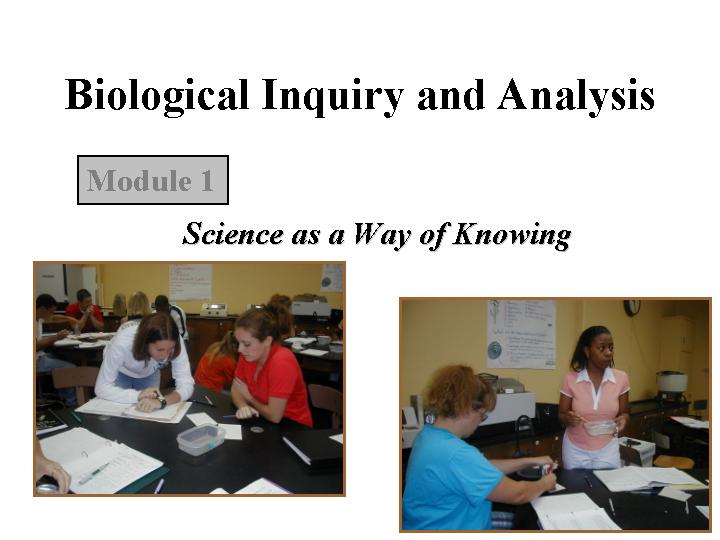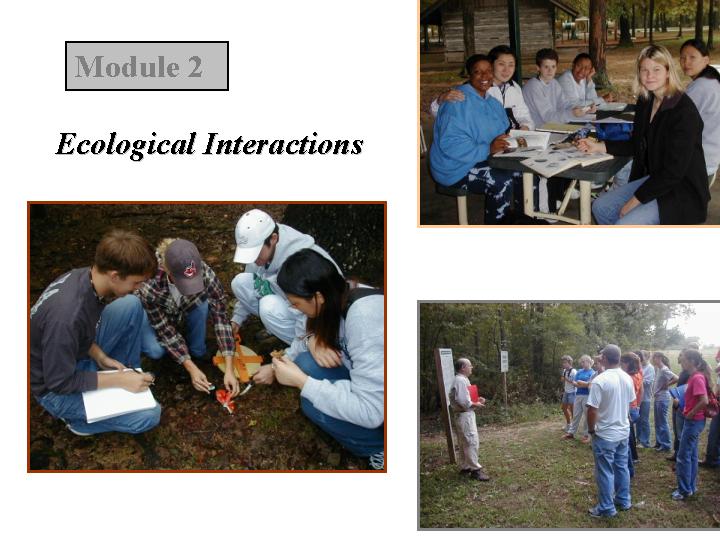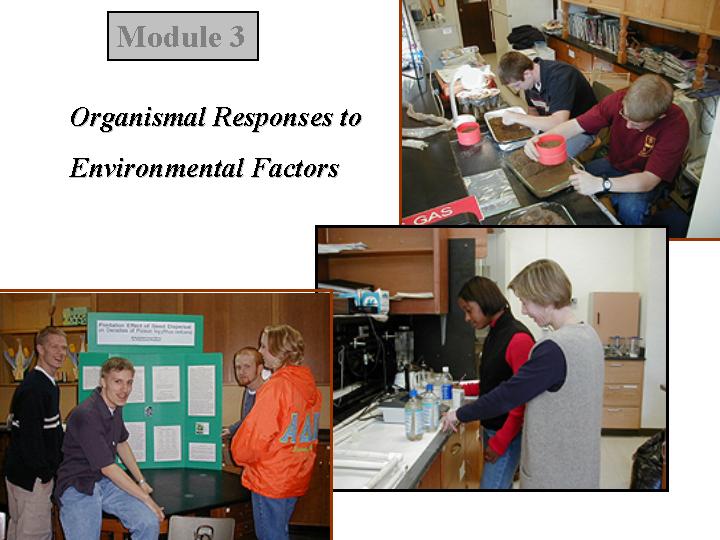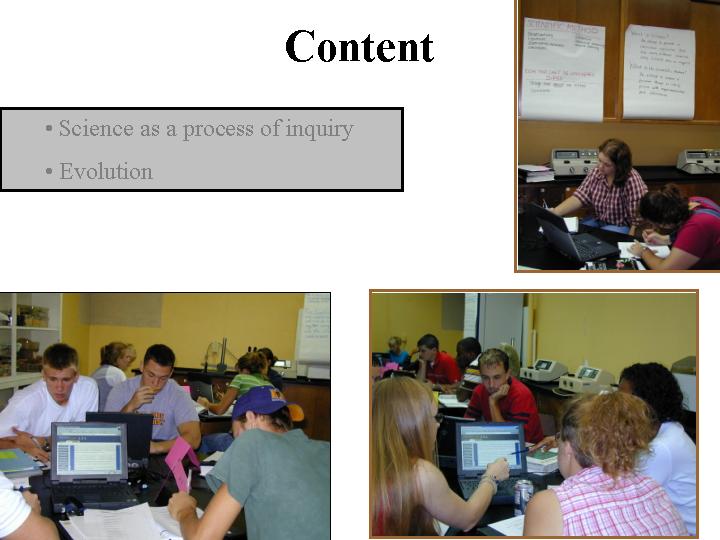
Reconstructing the Introductory
Biology Curriculum
Using Inquiry Based Approaches
Funded By:
National Science Foundation
DUE-CCLI A&I
 |
|
| During their first semester students take two new courses, one of which is Biological Inquiry and Analysis. Students complete three research modules during the course. In the first module all students conduct a guided inquiry, with all groups testing the same hypothesis. Once they have collected their data, each student writes the experiment and its results in the form of a research article. Drafts of each student's paper are peer reviewed prior to submission of the final draft. | |
 |
|
| During the second module the students conduct an ecology experiment of their own design in the field. Students make observations from which they develop a testable hypothesis. They learn various sampling methods, and the proceed to conduct their research over a two week period. Students again submit their final report in the form of a scientific article after receiving reviews from their peers. | |
 |
|
| During the final module of the course students conduct an experiment on the responses of organisms in the laboratory. Students make observations of a variety of species, develop a testable hypothesis using one of the species, and then complete their research investigation. Each group presents their research in the form of a poster following peer reviews. | |
 |
|
| In addition to their research investigations, students complete a series of web based activities which focus on understanding science as a process of inquiry and the Theory of Evolution. Through these activities and readings, students develop a knowledge and understanding necessary to gain an in-depth understanding of the research activities. |